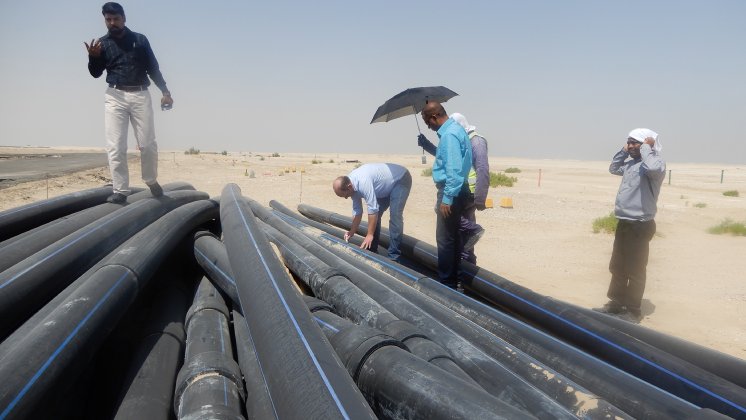For over 50 years, plastics have proven to be a cost-effective and reliable material for pipeline construction due to their excellent properties. At that time, the service life of these plastic pipes was estimated to be at least 50 years. Today, many of these pipes have reached their predicted minimum service life. The question therefore increasingly arises: “What condition are the first-generation plastic pipe systems in?”
Several factors need to be taken into account
In order to determine the current condition of plastic pipes, several factors must be taken into account. Material changes can be caused by physical ageing, reactions with oxygen, UV radiation or leaching of the stabilizers contained in the plastic. This can affect the strength of the pipes, which is particularly critical for operational safety in the pressure pipe sector.
Broad expertise required
"A comprehensive assessment of these ageing processes requires broad specialist knowledge, the right technical equipment and experience. The SKZ combines all of these qualifications,” explains Ulli Eisenhut, Head of the Special Services & Expert Reports Group at the SKZ. “As Europe's largest accredited plastics institute with more than 50 years of experience, we are experts in the research, testing and quality assurance of plastic products.”
Continued operation or refurbishment?
Thanks to its many years of experience in the field of “ageing of plastic pipelines”, the SKZ offers a comprehensive inspection of the condition of pipelines. This helps in deciding whether continued operation or renovation is necessary. Established and newly developed test methods for pipe materials and parts are used. Another important aspect is the weldability of old and new pipes. How can good joint quality be ensured for partial renovations? “Here too, our experts are on hand to help,” emphasizes Alexander Ebenbeck, Sales Manager at SKZ. “All common joining methods can be tested and the weld seam quality checked in our state-of-the-art joining technology center.”


